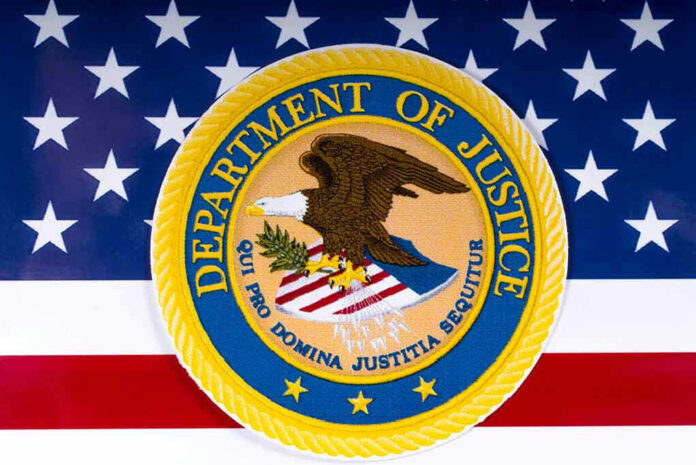
After years of public outrage, shocking revelations, and rumors swirling around the Epstein case, the Department of Justice and FBI now claim—without a hint of irony—that there is no so-called “client list,” no blackmail files, and, apparently, nothing for the American public to see.
At a Glance
- The DOJ and FBI’s July 2025 memo declares there is no evidence of an Epstein “client list” or blackmail.
- Officials insist Epstein’s death was a suicide, closing the door on homicide theories once and for all.
- Public frustration grows over withheld information and the perpetual lack of accountability for elites.
- The government cites victim privacy and “sensitive evidence” as the reason for keeping files secret.
DOJ and FBI Say “Nothing to See Here” on Epstein Client List
The Department of Justice and Federal Bureau of Investigation have closed the books—by their own account—on the Jeffrey Epstein saga, issuing a July 2025 memo stating there is “no evidence” of the elusive client list, no blackmail ring, and, for good measure, maintaining that Epstein’s death in his Manhattan jail cell was a simple suicide. That’s right: after years of the media promising bombshells, leaks, and accountability for powerful abusers, officials now want Americans to simply trust that the case is closed, the swamp is dry, and nobody of consequence will face justice for their ties to Epstein’s criminal network. This bureaucratic tap dance comes after months of public demands for transparency and a February 2025 document dump that, predictably, revealed nothing new. Once again, the people are told to move along and stop asking uncomfortable questions.
The government’s memo, obtained by mainstream outlets, claims investigators scoured every corner of Epstein’s files and found—surprise, surprise—no evidence of a client list, no hidden archive of blackmail, and no foul play in the financier’s 2019 jailhouse death. The DOJ and FBI say their “priority” is victim privacy, adding that more than 10,000 images of child sexual abuse material were found among Epstein’s possessions, but none will be made public. They state that further disclosure would not be “appropriate or warranted.” In other words, the public gets no answers, the media gets no new names, and the powerful who orbited Epstein’s world breathe a sigh of relief.
A Pattern of Secrecy: No Accountability for the Elite
This is hardly the first time the Epstein case has set off alarms about the two-tiered justice system. In 2008, Epstein received a sweetheart plea deal in Florida, escaping serious prison time and shielding his high-profile associates from scrutiny. The same pattern has repeated itself ever since: investigations that stall, documents that never surface, and the same tired excuse that “privacy” and “sensitivity” outweigh the public’s right to know. The DOJ’s latest memo is just another brick in the wall between the American people and the truth about who enabled, protected, and perhaps even participated in Epstein’s crimes.
The public’s skepticism is justified. The case sits at the intersection of criminal justice, elite privilege, and broken trust in institutions. After years of watching government agencies fumble (or intentionally sideline) investigations involving powerful individuals, Americans—especially those who still believe in the rule of law—see the Epstein saga as proof that accountability stops at the edge of the ruling class. The result? More conspiracy theories, more distrust, and a wider gulf between everyday citizens and the bureaucrats sworn to serve them.
Victims and Citizens Left in the Dark
For Epstein’s victims, the DOJ’s announcement is a double-edged sword. Privacy is important, but so is the demand for justice. Many survivors and their advocates have pushed for sunlight on the full scope of Epstein’s network, arguing that secrecy only serves to protect the powerful and silence the abused. Instead, the agencies declare the case closed, leaving victims with little hope of seeing their abusers unmasked or held accountable in a court of law.
Meanwhile, the broader public sees yet another example of government protecting its own. The lack of transparency fuels the belief—shared by millions—that the system is rigged for elites, and that ordinary people will never see the full truth about those who moved in Epstein’s circles. Media commentators, legal experts, and constitutional watchdogs all point to the same conclusion: when it comes to the crimes of the powerful, transparency is the first casualty.
Who Protects Whom? The Legacy of the Epstein Case
The government’s insistence that no further investigation or disclosure is “warranted” leaves the American people with more questions than answers. For all the talk about victim protection, what gets protected most is the privacy of the powerful. With no new names, no charges, and no independent review, the Epstein case is now officially a closed chapter—at least according to the DOJ and FBI. The reality, of course, is that the story will never end for those who have seen too many cover-ups and too little justice. Expect the conspiracy theories to continue, because when government secrecy becomes standard operating procedure, suspicion is the only rational response.
For those who still believe in the Constitution, in equal justice under law, and in government accountability, the message is clear: keep asking questions, because the people in charge would rather you simply stop paying attention.












